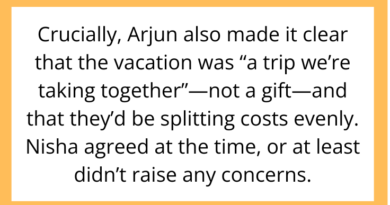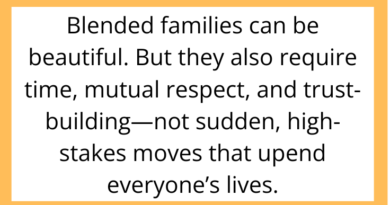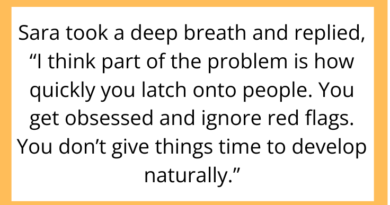AITAH for Not Wanting My Best Friend’s Boyfriend at My Birthday Party?
When friendships and romantic relationships collide, even the most thoughtful plans can turn into a battlefield of hurt feelings and misunderstandings. Today’s AITAH scenario explores what happens when one person tries to set boundaries—and ends up being labeled the villain.
The Backstory: A Party with One Exception

A woman in her late twenties—let’s call her Sara—shared her dilemma on r/AITAH, sparking thousands of comments and debates. Sara was planning her 30th birthday party. She wanted something low-key: a cozy dinner with her closest friends at her apartment.
She invited her best friend, Mia, who she’d known since high school. But there was one catch: Sara asked Mia not to bring her new boyfriend, Derek.
Derek and Sara had a rocky history. A year earlier, Derek and Sara briefly dated. It ended badly—Derek ghosted her, and when he resurfaced, he was dating Mia. Sara never told Mia how hurt she’d been, wanting to avoid drama. But the idea of having Derek at her birthday felt unbearable.
Mia was furious when she found out. She said Sara was being petty, controlling, and selfish. Sara tried to explain that it wasn’t about jealousy—it was about feeling comfortable in her own space on her special day.
So she turned to Reddit with the big question: AITAH for not wanting my best friend’s boyfriend at my birthday party?
The Case for Sara: Personal Comfort Over Politeness

It’s easy to empathize with Sara. This was her birthday, her home, and her guest list. She had no obligation to host someone who hurt her in the past.
Plus, Sara wasn’t telling Mia not to date Derek—she just didn’t want him at a private celebration. This was her attempt to keep the peace while maintaining her boundaries.
Many Redditors pointed out that birthdays are personal milestones. If you can’t set boundaries on your birthday, when can you?
The Case for Mia: Love and Loyalty

From Mia’s perspective, Sara was crossing a line. She believed her best friend was trying to dictate her relationship. Derek was an important part of Mia’s life, and excluding him felt like a personal attack.
Mia argued that if Sara truly valued their friendship, she would put aside past issues for one evening. To Mia, it seemed like Sara was punishing her for dating Derek, even if she hadn’t said it outright.
Reddit’s Verdict: Not the Villain

The overwhelming response from the r/AITAH community was that Sara was not the villain.
Top comments included:
“Your party, your rules. If she can’t respect your boundaries, that’s on her.”
“It’s not controlling to decide who comes into your home, especially on your birthday.”
However, some users gently suggested that Sara should have told Mia sooner about her history with Derek. Keeping it a secret made the situation more awkward.
What This Story Teaches Us

Boundaries Are Not Cruel
Setting boundaries isn’t an act of aggression—it’s an act of self-care. You’re not obligated to invite people who make you uncomfortable, even if it complicates things socially.
Transparency Matters
While Sara was within her rights, better communication earlier on could have prevented some hurt feelings. If Mia had understood the depth of Sara’s discomfort, she might have reacted differently.
Friendships Require Empathy on Both Sides
True friendship involves listening, understanding, and sometimes agreeing to disagree. But it should never mean sacrificing your peace to avoid upsetting someone else.
A Different Perspective: Should You Always Tell the Whole Story?

One of the most interesting debates on Reddit was whether Sara should have told Mia everything from the start. Some argued that hiding the dating history was dishonest. Others felt that Sara was under no obligation to rehash old wounds, especially since Mia was already dating Derek.
This raises a bigger question: when do you owe someone total transparency, and when is it okay to keep the past in the past?
Moving Forward: Repairing the Friendship

If you ever find yourself in a similar situation, here are some takeaways:
-
Be clear about your needs early.
-
Acknowledge the other person’s feelings without abandoning your own.
-
Offer alternative ways to spend time together.
-
Remember that it’s okay if not everyone understands your boundaries.



